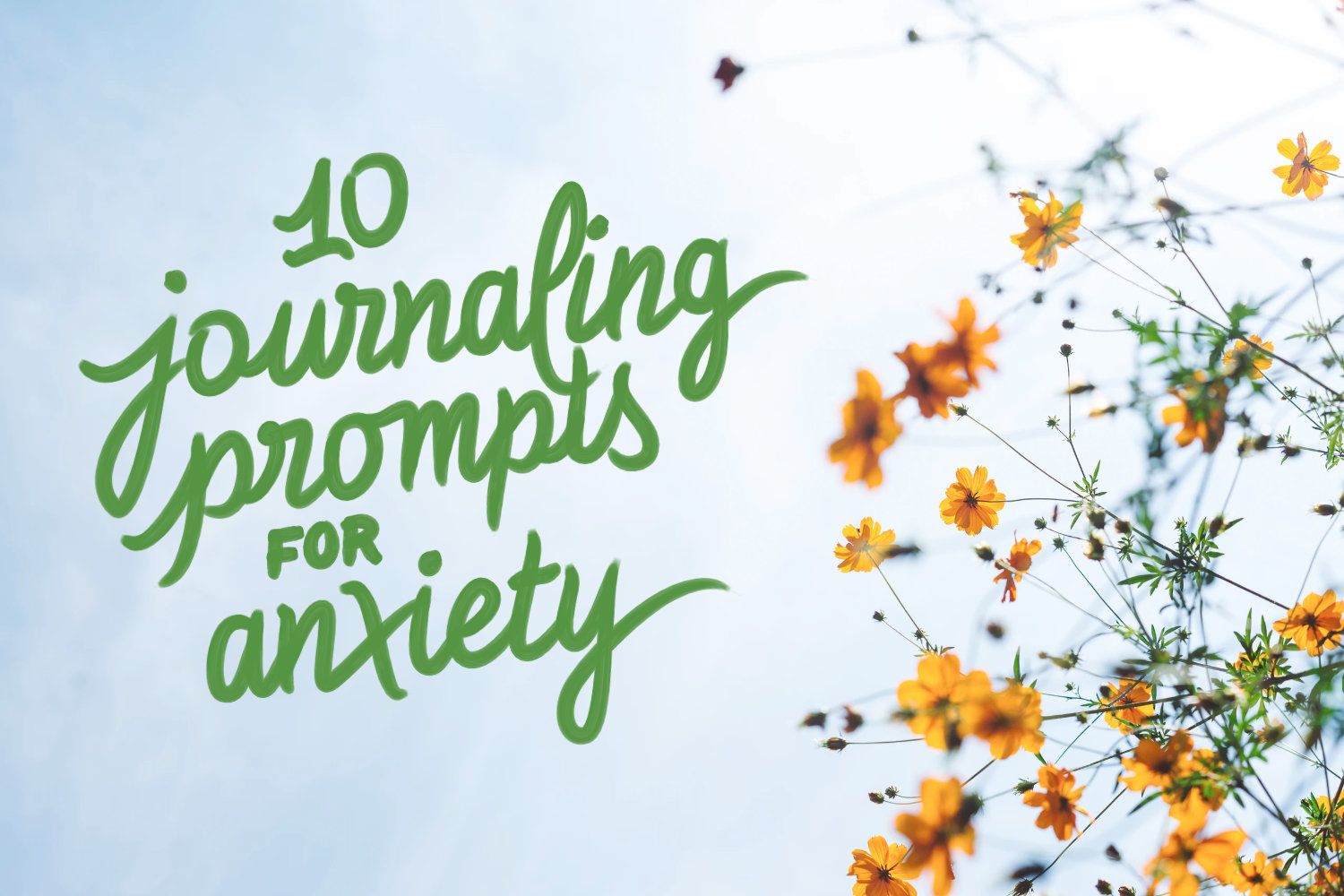10 Journaling Prompts for Anxiety

Journaling can help manage anxiety. Here are 10 prompts to get you started
Anxiety is something that affects many people, whether it be part of a diagnosed anxiety disorder or not. Outside the context of anxiety disorders, anxiety is defined as “a feeling of worry, nervousness, or unease, typically about an imminent event or something with an uncertain outcome.” In the realm of psychiatry, it is defined as “a nervous disorder characterized by a state of excessive uneasiness and apprehension, typically with compulsive behavior or panic attacks.” According to the Anxiety and Depression Association of America, 18% of adults and 25% of children between the ages of 13 and 18 are affected by anxiety disorders. Anecdotally, even more people are affected by bouts of anxiety not diagnosed as an anxiety disorder.
Many people find that working through emotions, fears, and sources of nervousness through journaling can help manage anxiety. To borrow one example, the writer Lori Deschene, founder of the online publication Tiny Buddha, wrote in an article that when it came to managing her anxiety, she found great help in journaling.
“There was a time when my mind was completely consumed by worries, and I lived in a perpetual state of panic,” wrote Deschene. “I worried about things I’d said and whether people were judging me, things I should be doing and whether I was using my time well, the state of my life, the state of the world, and just about anything else one could worry about.”
She goes on to say that although well-intentioned people encouraged her to find positive perspectives on the things that were giving her anxiety, simply willing positivity into her life wasn’t an effective tool. What was? Journaling.
“For me, journaling has been key,” wrote Deschene. “Journaling has helped me find solutions to my problems, identify and let go of things I can’t control, and change my perspective on the things I want to change but can’t. It’s also helped me recognize my own strength so that I can worry less about what’s coming and trust more in my ability to handle it, whatever it may be.”
If you find yourself facing anxiety, journaling may be a tool that could help you navigate and manage some of what you’re feeling. For many people, especially those with anxiety disorders, journaling may be a tool you couple with medical care through working with a psychiatrist or psychologist. Journaling, including the prompts outlined here, shouldn’t be considered a replacement for seeking appropriate mental healthcare.
10 journaling prompts
Here are some prompts you may want to try if you are feeling anxious and think that journaling may be a tool you would like to try:
1 — The elephant in the room
What is the thing that’s giving you the most trouble right now? What is the elephant in the room? Stare at it straight in the face and write it down. Describe it — where it came from, how it’s making you feel, what you would do about it if you could.
2 — Describing fears
Spend some time writing about one or two bigger fears you have. Let yourself really explore those fears for what they are. What do they feel like? What do they look like? Do they tend to crop up at certain times for you?
3 — Feelings & emotion
If you are feeling particularly emotional (be it sad, nervous, happy, or angry) about something, take some time to write about that emotion, what led you to feel it, and what you think it may mean for how you feel, overall. For example, if a family member told you they’d like to come and visit you and you found yourself feeling nervous about that, explore why that might be.
4 — Let go of control
List all the things in your life that you cannot control, and therefore, you cannot change by worrying about them.
5 — Strength
Reflect on a few times in your life when you were particularly strong. Maybe you overcame something very difficult or trying, or perhaps you found yourself very nervous about something but you persevered and did it anyway.
6 — Write a letter
If you are feeling particularly anxious about another person, use your journal to compose a letter to that person where you say everything you feel about them. Don’t actually send the letter, and decide you won’t send it before you start writing. This will free you up to really be honest with yourself (and your journal) about how that person makes you feel.
7 — List it
Make a list — like a grocery list — of all the things that are weighing on you, whether they’re things that are worrying you or things that you fear. Putting these things in a journal may help you see them for what they are: separate of you as a person, and rather things that you are experiencing and that will, eventually, go away.
8 — It’s OK not to know
What are you worried about that you definitively do not know the answer to, or do not know what the ultimate outcome will be? Write down, and recognize, that those things are elements of your life that you can’t see into the future to know the outcome of. Trust that it’s okay not to have the answers now, and know that you will be able to understand them when the time comes.
9 — Positive outcomes
Reflect on several decisions you’ve made in your life that have led to positive outcomes.
10 — Praise yourself
What is particularly laudable about you? If you were someone else and had to give a toast to you at an event, what would you say?
